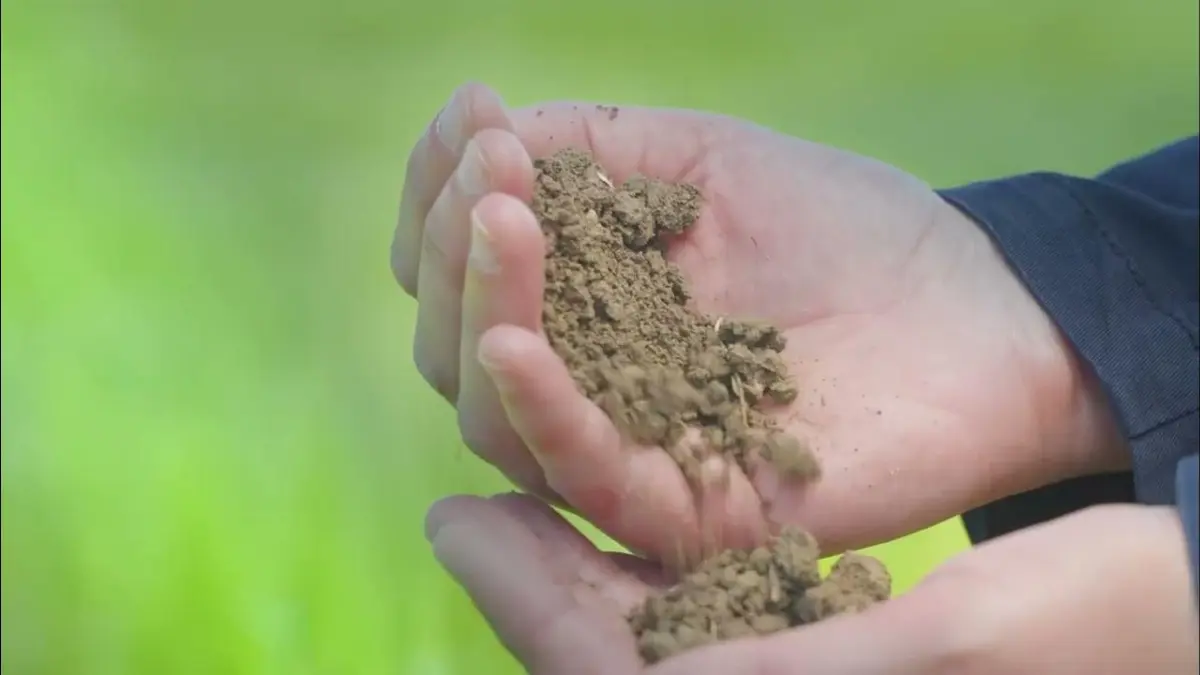
Regenerative agriculture: Bayer and Trinity Agtech join forces
A partnership aimed at pursuing the Carbon Initiative is underway

Bayer has announced a partnership with UK-based Trinity Agtech. As part of Bayer's efforts to advance regenerative agriculture, Trinity Agtech's Sandy platform will be instrumental to Bayer's Carbon Initiative in the EMEA region in measuring and monitoring carbon at the farm level. Furthermore, the cooperation will enable the customized development of Bayer solutions for the needs of value chain operators and growers based on Trinity's capabilities. By harnessing scientific, digital and agronomic strengths on both sides, the result is a unique regenerative agricultural ecosystem, developing high-quality resources for a market that must strive for tangible and credible results.
The European Carbon Initiative is vital to Bayer's overall strategy to shape regenerative agriculture. This involves making agriculture more productive and resilient while restoring natural resources. Launched in 2021, the Carbon Initiative now includes multiple tailor-made projects with large companies in the food and agricultural value chain. Today, farmers in several European countries and companies in the food and agricultural supply chain work with these partners to reduce carbon emissions and sequester carbon in the soil. Project results show that farmers using regenerative practices emit on average 15% less carbon than conventional farmers. By 2025, Bayer expects to significantly increase the number of food and agricultural value chain projects and the number of farmers participating in value chain programs as the European Carbon Initiative moves from the pilot phase to the expansion phase for commercial projects.
To support these objectives, reliable monitoring, reporting and verification (MRV) is critical for all actors in the food value chain to comply with third party, global guidelines, certification bodies and regulatory requirements. With Sandy, Trinity Agtech has developed a next-generation, reliable and easy-to-use cloud-based platform where farmers and project developers will bring all their data together in one place to create a fact-based, evidence-based registry. primary data of the natural conditions of a farm. capital. This allows the farmer to evaluate the farm's carbon budget and future options.
“Our collaboration with Trinity offers many benefits to farmers and our partners in the food value chain who want to meet their carbon reduction commitments and want to support regenerative practices in agriculture,” said Lionnel Alexandre , Carbon Business Venture Lead for 'Europe, Middle East East and Africa at Bayer's Crop Science Division. “We need reliable measurement and data analysis technologies to verify carbon reduction and sequestration on farms. Trinity contributes its cutting-edge platform recognized by many experts around the world.”
Trinity's models and analytical frameworks are nationally and internationally compliant with IPCC standards and other key global guidelines, such as Ghg-P, as well as prior verification against ISO 14.064 and 14.067 methodologies. Trinity Agtech's distinctive scientific committee includes leading international experts to ensure the most accurate assessment possible for the farmer with the available data. A recent study commissioned by the UK Department for Environment, Food and Rural Affairs (Defra) of 81 carbon calculators placed Trinity's Sandy software first in assessing the carbon footprint of farms and capital natural.
“We are proud of Bayer's commitment to credible and reliable sustainability analysis and their power to drive prosperity and environmental progress across the food and agricultural supply chain. Trinity is pleased to be Bayer's analytics partner of choice in this vital program,” said Hosein Khajeh-Hosseiny , founder and executive chairman of Trinity.
All digital and cloud-based solutions from Bayer and its partners meet or exceed global data privacy requirements and provide data storage in the world's most trusted cloud environments with leading security offerings. Additionally, farmers own and control their farm data. They decide what to share and what data to make available.
One of Bayer's strategic priorities is to help shape regenerative agriculture by investing in innovations that increase food production, farm incomes and climate resilience, while protecting and restoring nature. In line with the policy objectives of the E-Green Deal, Bayer is working on the decarbonisation of the food value chain by focusing on the activities of farmers and connecting them with companies in the food value chain. The idea is to reward growers who adopt regenerative farming practices such as the use of cover crops, reduced tillage, crop rotations and precision nitrogen application. These activities sequester carbon in the soil while improving soil health, resilience and productivity, as well as limiting emissions. Digital technologies are important facilitators for these efforts.
EFA News - European Food Agency